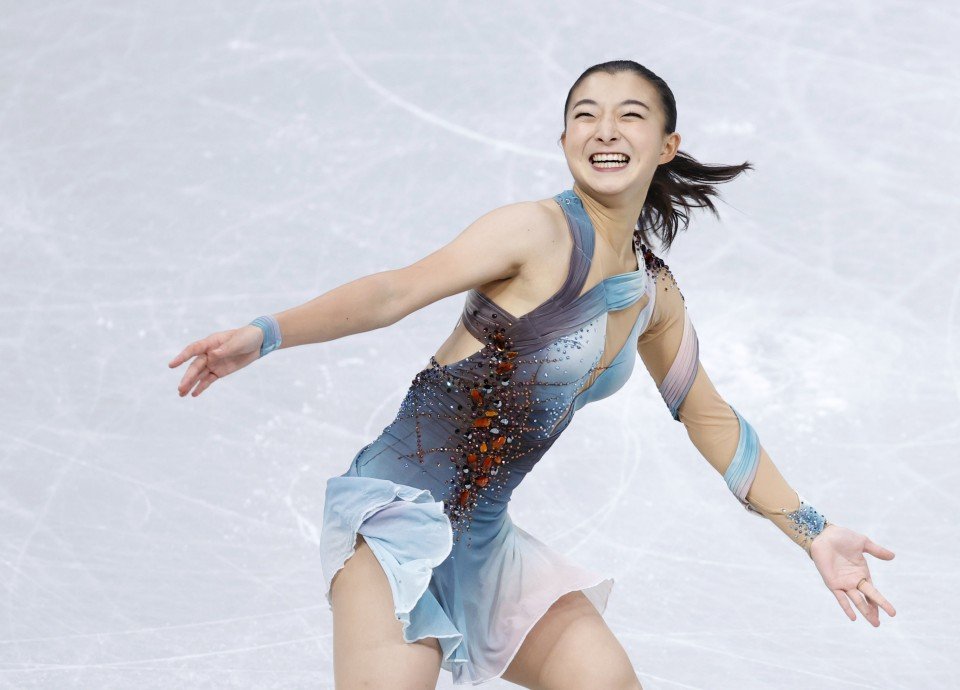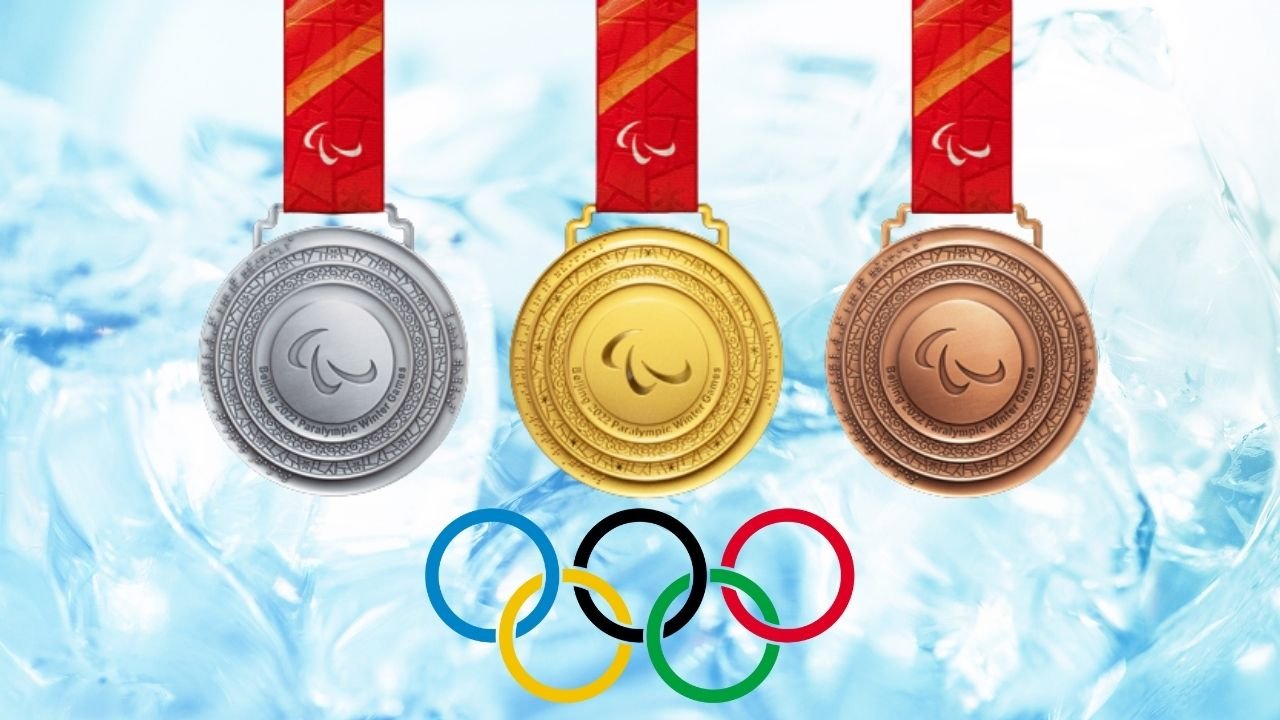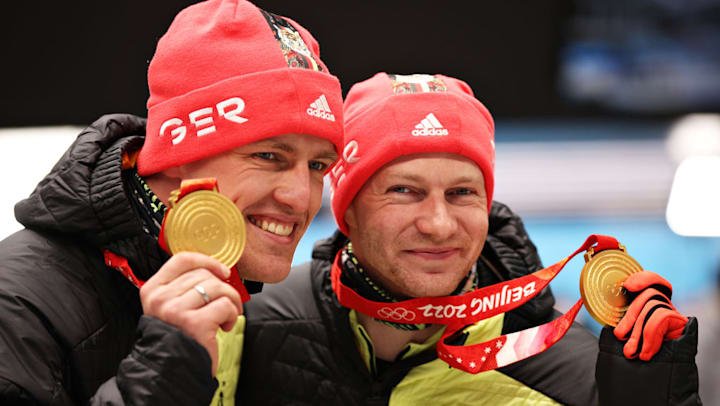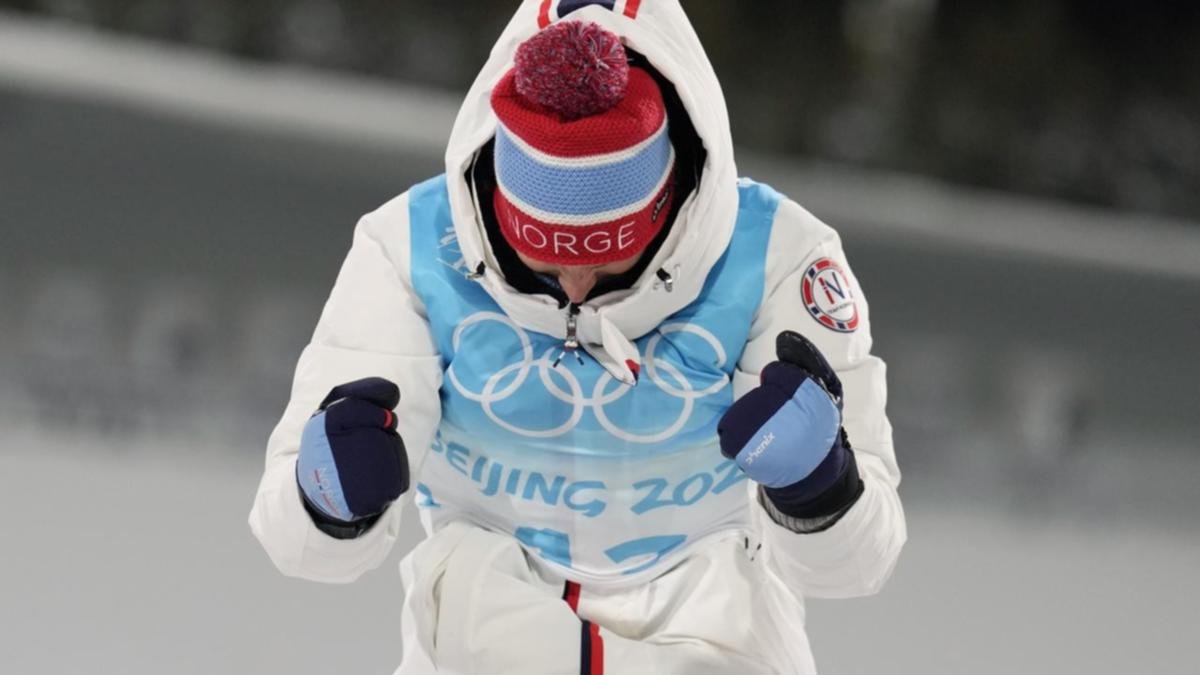Olympics Live: Kamila Valieva ends short program on top
Kamila Valieva has topped the leaderboard at the end of the short program in women’s individual single skating. The 15-year-old Russian at the center of the latest Olympic doping controversy is primed to succeed in her pursuit of another gold medal.
Her score of 82.16 points put her in first place in the field of 30. Twenty-five skaters are moving on to Thursday’s free skate round. Valieva’s fellow Russian Anna Shcherbakova was in second, and Japan’s Kaori Sakamoto edged out another Russian for third.
It would have been 24, but the qualification rule was changed to advance one more person if Valieva made it to the next round.
Valieva tested positive in December for a banned heart medication, though the result only emerged last week, after her two brilliant performances in the team competition helped win gold for the Russian team.
The Court of Arbitration for Sport ruled early Monday that Valieva should be allowed to compete in part because she is a minor, known as a “protected person,” and is subject to different rules from an adult athlete. But the decision from a three-person panel has been roundly criticized, including by others that performed before her Tuesday night.
___
The defending Olympic champion American men’s curling team will need some help to make it to the medal round.
John Shuster’s foursome lost 10-4 to Italy in eight ends on Tuesday night. The 2018 gold medalists have one match remaining, and they’ll need to win and hope they can qualify for the semifinals through the head-to-head tie-breaker.
It was 3-3 through four ends when the Italians scored two points to go ahead for good. With Italy leading 6-4 in the eighth, Shuster passed up an easy draw for one point and threw a riskier shot. It resulted in the worst-case scenario: A steal of four for Italy.
The Americans conceded the match.
The U.S. men have Wednesday off. They play Denmark on Thursday. With four wins, Shuster’s team will need a win and hope for some losses by Russia, Norway and Switzerland.
___
Germany just made a whole lot of bobsled history at the Beijing Games.
Francesco Friedrich drove to a gold medal in the two-man event that ended Tuesday night. Germany also got second and third, with Johannes Lochner driving to silver and Christoph Hafer piloting his sled to the bronze.
That’s the first gold-silver-bronze sweep by any nation in any Olympic bobsled race.
It also gave Germany seven sliding gold medals so far in Beijing, more than any nation has ever won in bobsled, skeleton and luge at a single games. The Germans also have 12 sliding medals at these Olympics, matching the total that East Germany and West Germany combined for in 1976.
Frank DelDuca was the driver of the top U.S. sled, finishing 13th.
___
Kamila Valieva barely held onto her opening triple axel, then survived the rest of her short program as the Russian figure skater at the center of the latest Olympic doping controversy begins her pursuit of another gold medal.
Valieva’s score of 82.16 points put her in first place with four skaters left to perform Tuesday night.
The fourth-quarter growth wasn’t as strong as expected. While business investment and exports also contributed to the expansion as supply chain blockages eased and the worst of the virus’s delta wave passed, the gains weren’t as robust as expected.
Government spending also fell, though a stimulus package announced by Prime Minister Fumio Kishida in November is likely to ramp up public outlays this quarter.
Earlier reports on retail sales and industrial production showed the economy’s momentum weakening after the emergence of omicron at the end of last year.
Conditions then deteriorated quickly at the start of the year, with daily virus cases jumping from around 500 to a record of more than 100,000 by early February. Kishida then reinstated quasi-emergencies in areas covering most of the economy.
A quasi-emergency allows local governments to push bars and restaurants to close early and stop serving alcohol. The measures were extended last week through early March for Tokyo and 12 other prefectures.
Some analysts expect the economy will decline in the current quarter as chip shortages, supply snags and slowing Chinese growth weigh on output, adding to the expected weakness in consumption.
Overseas demand may not provide as much support this quarter either.
“Exports are likely to weaken a little as supply side snarls from southeast Asia keep domestic factories from operating,” said Yuichi Kodama at Meiji Yasuda Research Institute.
The 15-year-old Valieva tested positive in December for a banned heart medication, though the result only emerged last week, after her two brilliant performances in the team competition helped win gold for the Russian team.
The Court of Arbitration for Sport ruled early Monday that Valieva should be allowed to compete in part because she is a minor, known as a “protected person,” and is subject to different rules from an adult athlete. But the decision from a three-person panel has been roundly criticized, including by others that performed before her Tuesday night.
___
The US Olympic body’s athlete representative group has urged the IOC to reverse its decision to withhold presenting medals for team figure skating in Beijing.
The American team took silver behind the Russians whose winning team last week included Kamila Valieva, who is under investigation for doping. Japan took bronze.
The scheduled medal ceremony was pulled last week after a laboratory in Sweden flagged 15-year-old Valieva’s positive test for a heart medication banned in sports.
The USOPC Athletes’ Advisory Council says Olympic medalists deserve to be feted at a medal ceremony.
The athlete group says it is “devastated that that the United States figure skating team and others could potentially be leaving without such a celebration.”
The investigation of Valieva’s doping case will be prosecuted later in Russia. That verdict can be appealed against and take at least several months to resolve.
Norwegian favorite Jarl Magnus Riiber took the wrong turn early in the 10K cross-country race at the Olympics, a little more than 24 hours after coming out of isolation, and two teammates took advantage.
Joergen Graabak of Norway made the most of the opportunity, winning gold in Nordic combined Tuesday.
Graabak rallied from a deficit of 2 minutes, 7 seconds behind Riiber at the start of the cross-country race to finish first after placing 12th in ski jumping.
Graabak became the first two-time Nordic combined Olympic champion on the large hill after winning the event in 2014.
Norwegian teammate Jens Luraas Oftebro won silver, finishing four-tenths of a second behind. Akito Watabe of Japan earned bronze.
The athlete who jumps the farthest and impresses judges the most starts the cross-country portion of the Nordic combined event with a lead. The rest of the field follows, in order of the finish in ski jumping. The first to cross the finish line wins gold.
___
Norway’s Jarl Magnus Riiber jumped 142 meters (466 feet) and had 139.8 points in the first phase of Nordic combined, giving him a 44-second lead in the 10-kilometer cross-country race later Tuesday.
It was an impressive performance from the three-time world champion, who returned to the competition after being in isolation for more than 10 days because he tested positive for COVID-19.
Estonia’s Kristjan Ilves, who also had tested positive for COVID, will start the cross-country race second alongside Japan’s Ryota Yamaoto.
The athlete who jumps the farthest and impresses judges the most starts the cross-country portion of Nordic combined with a lead. The rest of the field follows, in order of the finish in ski jumping. The first to cross the finish line wins gold.
Three-time Olympic gold medalist Eric Frenzel of Germany is out of isolation and the team is hopeful he will be fit to compete Thursday in the Nordic combined team event.
___
Star figure skater Kamila Valieva joined Russian teammates Anna Shcherbakova and Alexandra Trusova at Capital Indoor Stadium for a final run-through hours before the start of the women’s individual competition at the Beijing Games.
Valieva was cleared to compete Monday by the Court of Arbitration for Sport following a hearing into a positive drug test that surfaced the previous week. One of her lawyers has since said the heart medication that triggered the positive test came from a contaminated cup that the 15-year-old Valieva used after her grandfather.
Valieva looked calm and confident in the glittering purple dress of her short program, set to “In Memorian” by the composer Kirill Richter, though she did fall hard on a triple axel during the session. She was watched closely by her embattled coach, Eteri Tutberidze, who also coaches the other two Russian women.
___
For the second straight Olympics, Norway is the gold medalist in men’s team pursuit speedskating.
Norway won the gold-medal final with a time of 3 minutes, 38.08 seconds — nearly 2 1/2 seconds ahead of the Russian Olympic Committee.
The Norwegian trio of Hallgeir Engebraaten, Peder Kongshaug and Sverre Lunde Pedersen defeated the Netherlands in the semifinals, then led all the way in the final against the Russian Olympic Committee.
The Russian team settled for the silver, while the United States claimed the bronze by beating the Dutch in the B final.
___
The United States has won its second speedskating medal of the Beijing Olympics, taking the bronze in men’s team pursuit.
With 36-year-old Joey Mantia leading three American skaters through all eight laps, the U.S. denied Sven Kramer of the Netherlands his 10th career medal.
The U.S. finished in 3 minutes, 38.80 seconds, nearly 3 seconds ahead of the Dutch.
Also winning bronze with Mantia are Ethan Cepuran, Casey Dawson and Emery Lehman. Cepuran skated in the semifinals, then was replaced by Mantia for the bronze-medal race.
___
Canada has won speedskating gold in women’s team pursuit after a skater for defending Olympic champion Japan fell on the final turn.
Japan appeared to be heading for a second straight gold medal in the event, holding a lead of about 0.3 seconds with a half lap to go. But the final athlete in the three-skater train, Nana Takagi, lost her balance and skidded into the padding coming through the final turn.
That allowed the Canadian trio of Ivanie Blondin, Valerie Maltais and Isabelle Weidemann to pull out the victory in dramatic fashion.
Takagi got up and crossed the line far behind her two teammates, finally registering a time for Japan. She was in tears as she was consoled by her sister, Miho Takagi, and the other member of the Japanese team, Ayana Sato.
Canada won with an Olympic-record time of 2 minute, 53.44 seconds. The Japanese settled for silver, more than 11 seconds behind.
The Netherlands beat the Russian Olympic Committee in the bronze-medal final.
A Dutch team that included individual gold medalists Irene Schouten and Ireen Wust, joined by Marijke Groenewoud, led all the way to finish in 2:56.86. They were more than 2 seconds ahead of the Russians.
___
Norway has won biathlon gold in the men’s four-man relay.
Clean shooting by Norway’s Vetle Sjaastad Christiansen and an uncharacteristic miss by France’s Quentin Fillon Maillet allowed Norway to leave the range first and win with a time of 1 hour, 19 minutes, 50.2 seconds.
France held on for the silver, 27.4 seconds back and Russia stayed in front of Germany for the bronze, 45.3 seconds behind. The Russian athletes had led from the start of the race, but a series of missed shots on the very last shooting stage cost them the gold medal.
Strula Holm Laegreid led for Norway, followed by Tarjei Boe, Johannes Thingnes Boe and finally Christiansen. It was Johannes Boe and Tarjei Boe have both won four medals at the Beijing Olympics and Fillon Maillet’s has won five.









